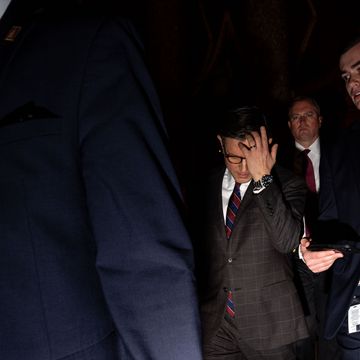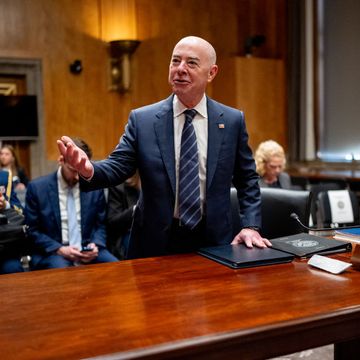A lot has been made of the contrast between how the Canadian Broadcasting Corporation handled the events yesterday in Ottawa, and how our own cable news networks handle practically everything. In brief, the difference was roughly the difference between the morning edition of The Times Of London and a tornado siren. However, one of the more startling things about CBC's coverage has gone largely unnoticed.
When there stopped being news, the CBC News stopped covering the story and cut away to its regular daily programming. It happened so quickly that it caught me by surprise. One minute, there was anchordude Peter Mansbridge, who's now the guyI want at the desk when the Last Trumpet blows, telling us what we knew and (most important) what we didn't know. And the next, we were back to its being a Wednesday afternoon and "Today, in Alberta..."
Imagine that. There was no Political Powerhouse panel to explain how this might have an impact on the Harper government. There was no aging M.P. representing Yellowknife hollering that this never would have happened if they'd only have built the dang pipeline, and no young opposition M.P. speculating about how this never would have happened if they'd secured the border with Quebec the way he and his ghostwriter had suggested in his recent book. There were no former generals on the dodge, speculating sadly that the shootings may indicate "a new stage" in the war on terror. There was a deplorable lack of political opportunism, and a dreadful dearth of doomsaying. There was no fancy logo. No heroic music adapted from a movie trailer especially for the occasion. There was only Mansbridge, the calmest guy in the hemisphere, who went almost two hours without a break at one point, telling us what we knew and (more important) what we didn't know, adding some historical perspective from his long career, and occasionally tossing it to one of his colleagues, who would do the same. And then, when there clearly was no more news coming, they all signed off.
(According to his official bio, Mansbridge began his career as a radio reporter in Churchill, Manitoba, which is the place where they have the holding pen for polar bears outside of town. I've been there and I can tell you, this may account for Mansbridge's cool. Once you've become accustomed to seeing a polar bear and her cub breezily walking down a downtown alley in the middle of the day -- Churchill is dead on top of the migratory route that the bears use every year -- nothing else about anything anywhere will faze you.)
It used to be that, when there were no further developments, news operations waited until there were. That was when the country looked to the three major networks, and their anchors, for the news, and these were anchors who were trained as reporters, not as television stars. But then there was cable, and CNN, and then the flood of cable news outlets, and news became entertainment, and a big story became an instant miniseries, with special-effects and theme music, and the point became keeping the story on the air, somehow, even if it meant speculating about airliner-gulping black holes, or Ted Cruz's yammering about epidemiology. And, of course, there is another great difference.
The CBC is a Canadian crown corporation. This means it is publicly owned. It runs commercial announcements, but not many, and only to supplement the money from its federal funding. Peter Mansbridge was telling us the news, not selling us Cialis, and that makes all the difference.

Charles P Pierce is the author of four books, most recently Idiot America, and has been a working journalist since 1976. He lives near Boston and has three children.













